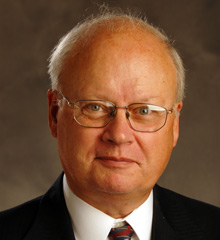Outline of Titus
Revised by Mary Hinkle Shore, 8/23
1. Opening (Titus 1:1-4)
In this, the longest opening of any of the three Pastoral EpistlesThe Pastoral Epistles are the New Testament letters of 1 and 2 Timothy and Titus. They are described as pastoral because they are addressed to individual persons rather than churches; they deal with matters of leadership and church governance. More (which include, along with Titus, also 1 TimothyThe companion on Paul’s later journeys for whom two pastoral epistles are named. More and 2 Timothy), PaulThe Apostle Paul, originally known as Saul of Tarsus, was the author of several New Testament letters and the founder of many Christian communities. More addresses Titus as his “loyal child in the faith.”
2. Exhortation to Appoint Church Leaders in Crete (Titus 1:5-9)
As Paul’s representative, Titus is to appoint eldersElders are leaders who exercise wisdom or leadership by virtue of their age and experience. In the New Testament elders, along with the chief priests and scribes, constituted the primary opposition to Jesus when he taught in Jerusalem. More (also translated as “presbyters”) in every town in Crete, and the qualifications of a bishop are delineated.
3. Exhortation to Oppose False Teachers and Their Teaching (Titus 1:10-16)
The ordering of the church is important to combat false teachers, whose teaching and conduct are described very briefly.
4. Exhortation to Foster a Christian Ethos (Titus 2:1-10)
Instructions are provided for the conduct of older men and women, young men (for whom Titus is to be a model), young women, and slaves.
5. Life under GraceGrace is the unmerited gift of God’s love and acceptance. In Martin Luther’s favorite expression from the Apostle Paul, we are saved by grace through faith, which means that God showers grace upon us even though we do not deserve it. More (Titus 2:11-3:11)
The letter speaks of the transforming power of grace, baptismal regeneration, and how believers should be devoted to good works.
6. Further Instructions to Titus (Titus 3:12-14)
Paul asks Titus to meet him at Nicopolis and gives him various other instructions.
7. Greeting and Benediction (Titus 3:15)
Paul sends greetings from others who are with him, along with a greeting of his own. The letter closes with a benediction.

